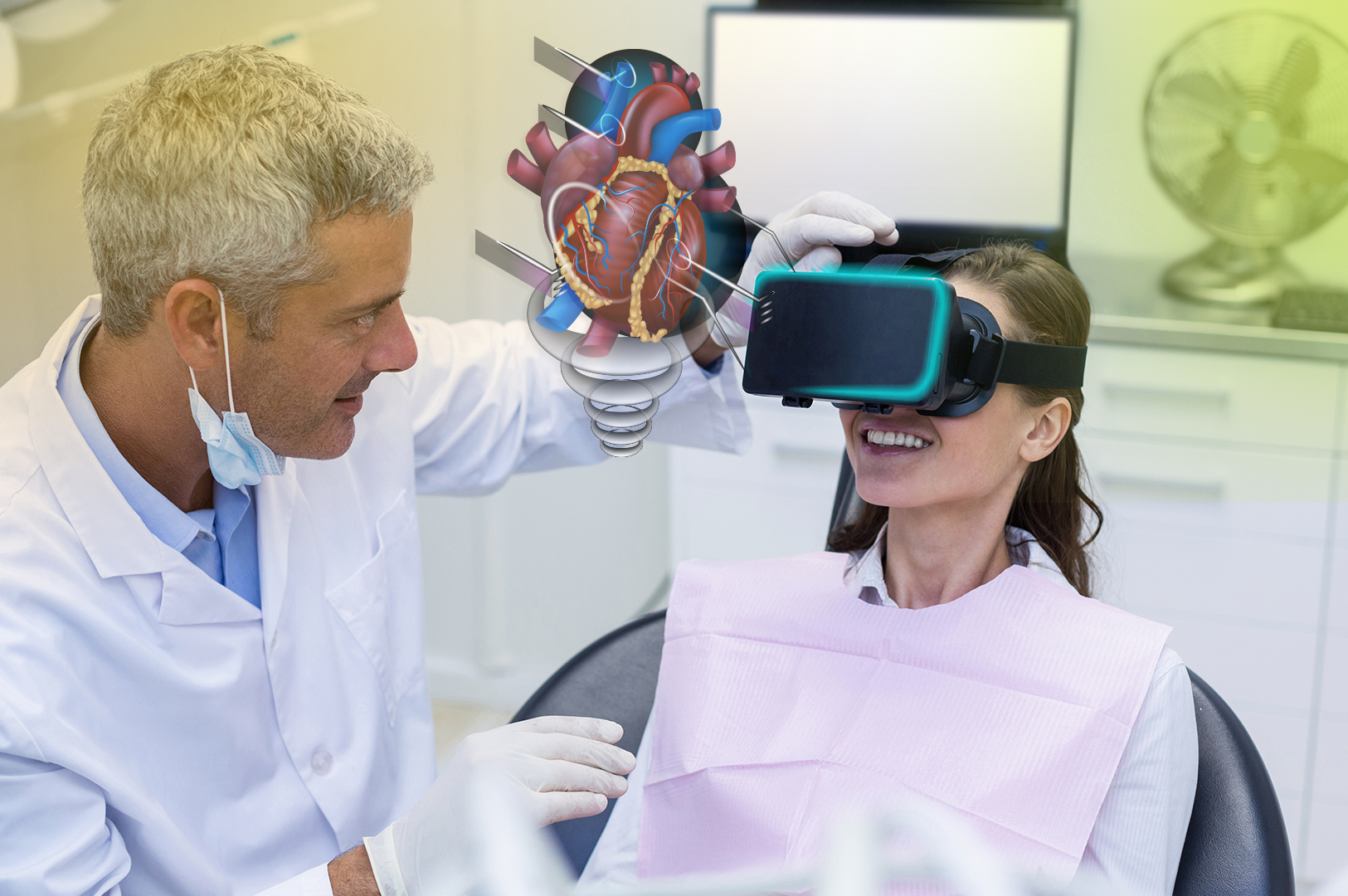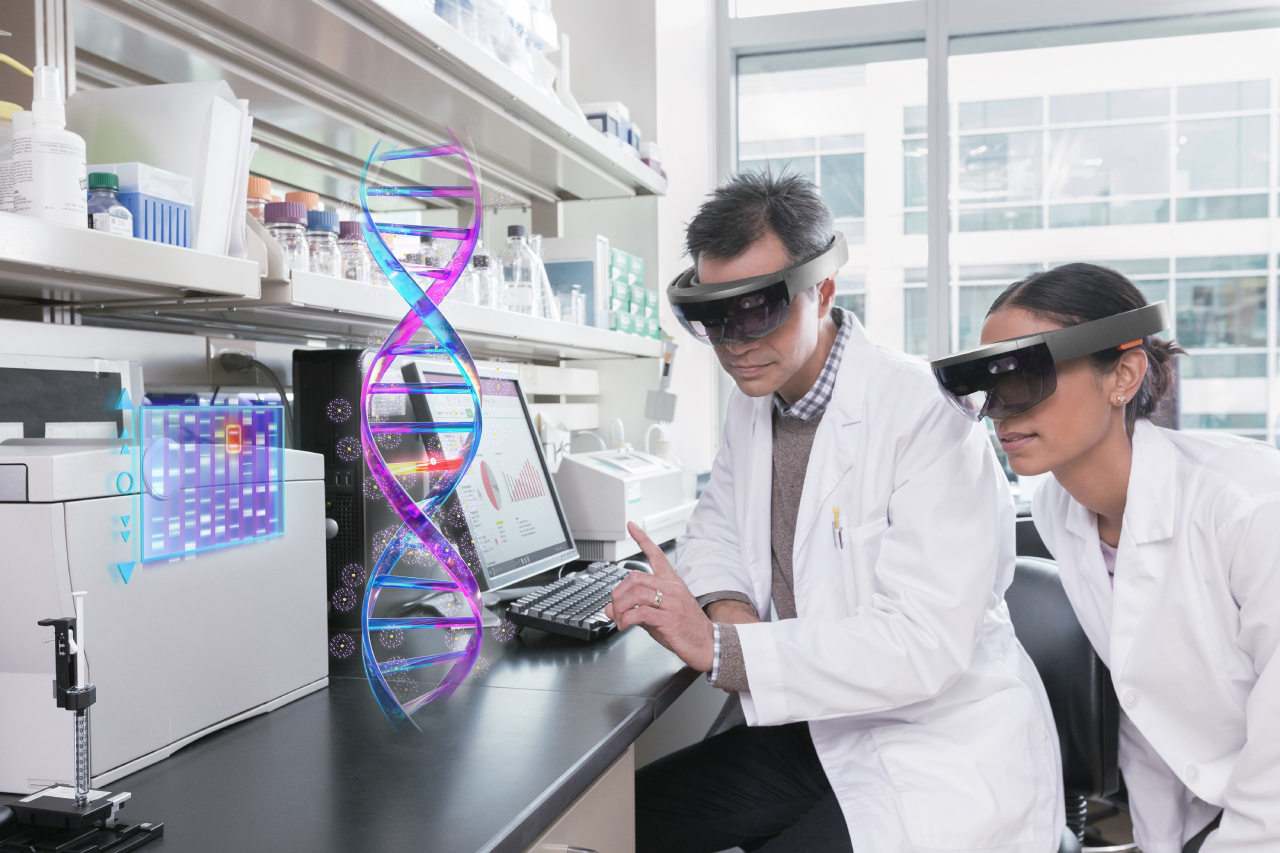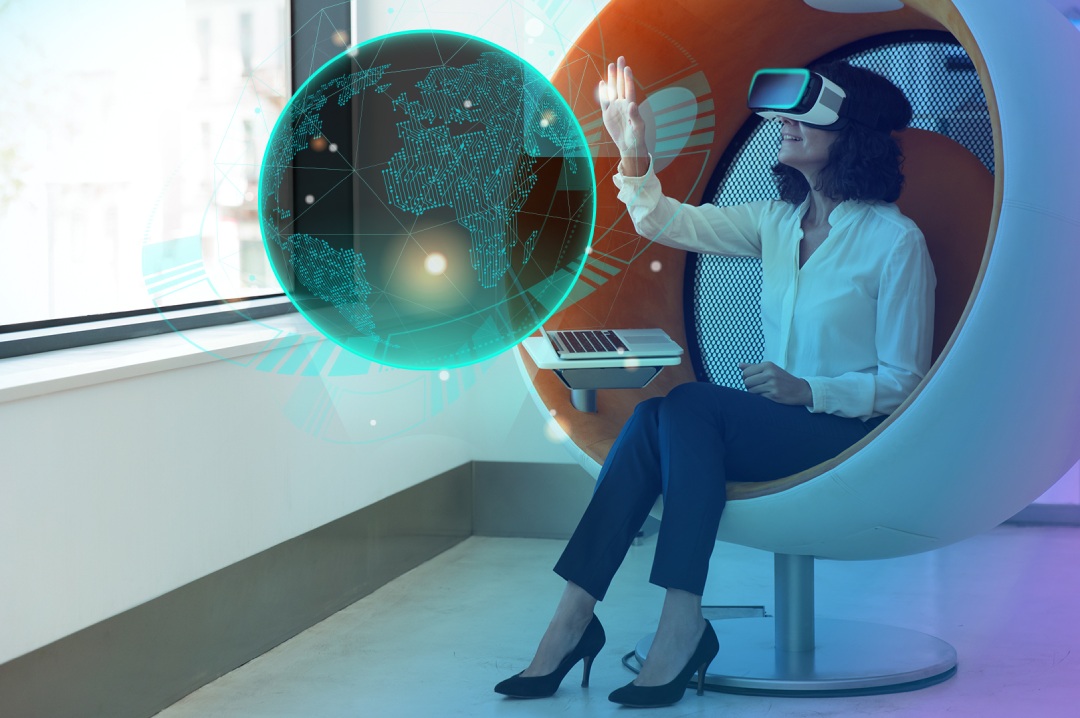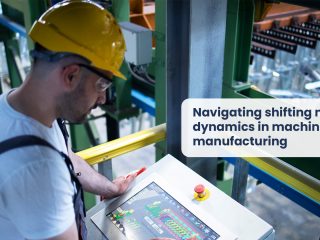VResearchers are depending on innovative and future technologies to fast track vaccine development to end the COVID19 pandemic. Virtual Reality (VR) offers an essential role in fighting the pandemic, through interactive virtual communication.
The first VR application in health care originated in the 1990s, for handling and learning surgical treatments and has been identified as a cost-effective tool that allows the medical learners to recognize and reduce the errors that occur across the learning curve. In the 20th century, VR has been employed in recuperation cases where it has proven as a superior quality approach showing higher effectiveness.
During pandemics, VR can be quite useful for many healthcare-related applications and can be effective to solve the challenges that arise due to restricted life. Few of them include
- Remote medical assistance
- Remote training
- Drug discovery
- Remote collaboration
How VR can help design drugs?
Virtual Reality is an effective tool that should help in developing drugs against pandemics and help medical researchers to share models and collaborate in new ways. It helps researchers to model how viral proteins and inhibitors attach to the enzyme. Researchers can use VR to help understand how the enzyme works, and also to see how potential drugs fit into the enzyme. Mixed Reality (MR) solutions would help design and test new potential drug leads, while there will be multiple efforts globally aimed at identifying a vaccine for pandemics.
VR will be a valuable tool, facilitating virtual collaboration among the international drug discovery community and helping researchers to predict how a potential drug binds to harmful viruses. Excitingly VR allows researchers to collaborate using cloud computing. They can deal with a drug discovery problem together at the same time being at different locations, working in real-time in the same virtual molecular environment. A new VR application developed by scientists from the University of Bristol demonstrates the ability of VR in healthcare and vaccine development.



Role of VR in pandemic
VR has a lot of potential in healthcare. There are numerous ways in which VR helps mitigate the effects of a pandemic such as COVID-19.
Medical Training
Effective and proper COVID-19 medical staff training will make healthcare workers familiar with the actual case and the exact situation to be handled. VR offers healthcare workers to practice all the most complex cases by supporting them to have the same reachability as real patient handling.
VR supports creating an analogous environment where healthcare workers can learn more quickly and effectively to handle situations with proper learning. This way, the industry is employing VR to deliver superior quality training for the handling of surgical cases. VR ultimately offers an interactive and immersive experience.



Patient education
The impressive and immersive experiences offered in VR educate not only the healthcare personals but also the patients. VR can enhance patient satisfaction and educate them on the medical condition in a more detailed way. In the case of surgery based treatments, its value gets multiplied
Phygital therapies
Apart from the psychosomatic and surgical treatment, VR proves superior while handling physical therapy. The digitally simulated virtual training and learning atmosphere helps the patient to understand the therapy, practice, and to heal more quickly and sharply. This ultimately reduces the overall recovery time and enhances the patient’s mental health.
The advantages of Virtual Reality concept in fighting future pandemics are
- Improving teamwork in the medical team
- Increase the safety of patients and physicians
- Improved quality in remote assistance
- Overall performance improvement in healthcare practice
Applications of VR in pandemic
VR has been revealed as a top invention of the digital field for the contemporary world. It is drastically changing the traditional way of medical learning methodologies and case handling approaches.



- VR for Physical Therapy: VR to handle cases of physical therapy more effectively and impressively
- VR for Rehabilitation: Patient recoveries will be faster when using VR based recovery therapies
- VR for Healthcare Professional Training: VR holds the capability and power to train healthcare workers with the relevant and required information
- VR for Distracting Patients: VR headsets can be used to change the focus of patients to different realms and make treatment less stressful
- VR for Treatment of Psychological Disorders: VR can be hugely successful in treating patients with fear, phobias, or other psychological disorders
Last words
VR proves to be an effective tool in medical training and case handling strategies. VR provides an edge to confront the challenges posed by the current COVID-19 pandemic by enhancing the confidence, skill, performance, and attitude of healthcare workers. VR can be used as a complementary healthcare tool that could improve the execution of medical deliverables. With proper content creation and implementation, researchers and healthcare workers collaborate in real-time for the development of drugs. VR includes the enhancement in the accuracy and the efficacy of the actions, improved working proficiency, which plays a vital role in effectively handling the ongoing pandemic and future pandemics positively.











